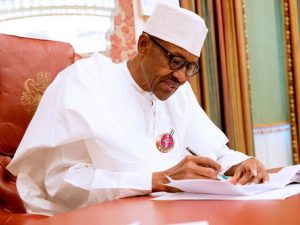
The federal government has resolved to borrow more foreign loans as a strategy of refinancing domestic debt. The Director-General of the Debt Management Office (DMO), Ms Patience Oniha, stated this on December 18, 2017 at the launching of the government’s Green Bond meant to finance clean energy projects.
Oniha had stated that, as authorised in the Appropriation Act, the government in managing its debt profile would embark on more foreign borrowings. It is currently contracting $5.5 billion external loans, $3 billion of which is expected to be used in re-financing maturing domestic borrowings, mainly Treasury Bills.
“Going forward, we have decided to do more of external borrowings at cheaper rates’’, she declared, adding that government was determined to make sure that debt servicing, if it does not come down, at least remains manageable.
Government has been worried over the huge component of domestic debt in the overall national debt profile, especially the fact that such domestic debts are at higher interest rates to foreign loans.
While foreign loans, mainly multilateral and bilateral, carry interest rates ranging from 1 percent to 7 percent over 10 to 40 year periods and with grace periods, interest rates on domestic debt instruments like Bonds and Treasury Bills range from 5 to 15 percent with shorter maturities of a few months to about three years.
This, argue government officials, is what makes borrowing externally to pay domestic debt attractive. For instance, Minister of Finance, Kemi Adeosun, points out that using $3 billion to refinance maturing short-term Treasury Bills will be saving the country N91.65 billion.
No doubt, domestic borrowing by government is high. According to Dr. Abraham Nwankwo, former Director-General of the DMO, Nigeria’s total debt, as at December 2016 stood at $57.39 Billion ( N17.36 trillion ) made up of foreign loans of $11.41 billion ( N3.48 trillion) and domestic loans of $45.9 billion (N13.88 trillion).
The DMO put the country’s domestic debt stock at 12.49 trillion, as at September 30, 2017, projected to cross the N14 trillion mark by the end of 2017, while disclosing that interest payments over the last five years amounted to a whopping N4.8 trillion.
These grim statistics raise many questions. What have been the benefits of the domestic borrowings to the economy? Is the piling up of foreign debts to pay local debts the only solution to funding budget deficit? In spite of Oniha’s assurance of making the nation’s debt manageable, how credible is this assurance given the abysmal record of the past that landed the nation into a debt trap? We have repeatedly cautioned against the federal government’s easy recourse to foreign borrowing as a form of incremental financial squeeze on the nation, masked with sweet talk and the bandying of dubious statistics.
For instance, given the volatility of the international oil market and its adverse effects on oil earnings, we consider it over optimistic of government to create the impression that servicing external debt will not become an unsustainable burden, over time.
Debt service to export earnings , the main source of foreign debt payment, is estimated at 68 per cent. We consider it a self-serving argument that debt service to revenue ratio only reaches a crisis situation when it crosses the 100 per cent threshold.
Secondly, the monetary policy of the Central Bank of Nigeria (CBN) that has retained a benchmark interest rate of 14 percent, as a way of mopping up excess liquidity, does not address the root cause of the problem which is politically motivated disbursement of non productive funds into the system.
Reining in frivolous government spending, expanding domestic tax base and plugging financial leakages in the system are measures which government can take to considerably reduce budget deficit and consequently its need to borrow extensively, both domestically and externally.
The Muhammadu Buhari presidency has no right to mortgage the future of the country into perpetual debt stress by incurring ill-considered, huge foreign loans to repay ill-digested, politically expedient domestic debts for which no specific projects can be identified as benefits. We would like to stress that extensive foreign borrowing, under whatever guise, is a potential debt entrapment.
Independent.ng


